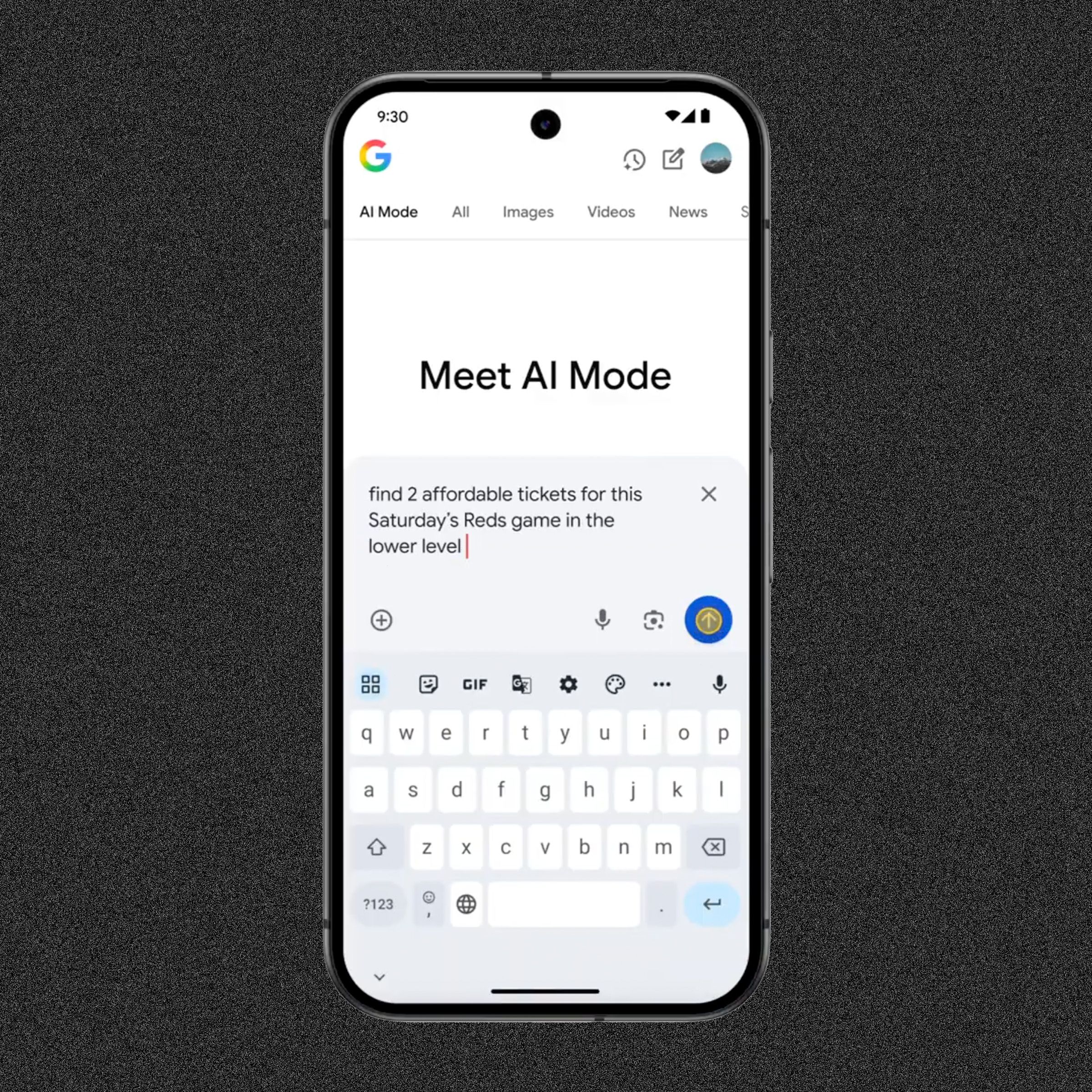Google is rolling out its AI Mode search experience to everyone in the US starting today. The chatbot-style addition to the company’s search engine results page is designed to answer longer queries and uses Google’s AI model to generate full responses based on—and linking back to—indexed websites on the open web.
AI Mode is Google’s direct response to the release of search engines from Silicon Valley startups like OpenAI and Perplexity, which provide chatbot-style answers to questions and queries.
If all of this feels like déjà vu, that’s because at last year’s Google I/O developer conference, the company rolled out AI Mode’s precursor, AI Overviews. In 2024, Google started to use its machine intelligence model to summarize the contents of the web and plaster a block of text at the top of the results for some queries. AI Overviews were criticized at the time of their release for giving wrong and absurd answers as a flood of users pushed the feature to its limits and demonstrated how generative AI tools can misinterpret online information. Who could forget that hilariously wrong result about putting glue on pizza?
Google has been tweaking its AI summarizing tools in the year since that launch. The company has now built a custom version of its Gemini 2.5 model that splits up questions into multiple queries to create the results you’ll see in AI Mode. “It allows for much more powerful discovery of the web because you wouldn’t have asked these, let’s say, dozens of other questions,” says Robby Stein, Google’s vice president of product for search. “Many times there’s no website that has the information you’re asking specifically.”
Despite improvements to the underlying model, the accuracy of answers given by AI search engines is still under scrutiny. Due to the way large language models process information, the bots are prone to introducing false information.
AI Mode, like most chatbot tools, includes a disclaimer at the bottom of answers stating that the software makes errors. In WIRED’s tests of the beta version, AI Mode’s answers for some health-care-related queries had additional caveats. “This is for informational purposes only. For medical advice or diagnosis, consult a professional,” read the extended disclaimer at the end of an answer about trans teenagers seeking gender-affirming care.
In addition to concerns about accuracy, many search engine experts I spoke with still seem doubtful that users will actually check the websites cited in a chatbot’s answer, compared to how many would have clicked on the blue links listed in a more traditional Google search.
“Click-through rates on AI Overviews are drastically lower than with search results without AI Overviews on the page,” says Barry Schwartz, a search engine expert and CEO of the software services company RustyBrick. “So, people are just trusting what they’re seeing. They’re reading it, and they’re moving on.”
Last year, I wrote about how one of my articles, previously appearing at the top of search results, was swallowed up and bumped down on the page by an AI Overview. Google eventually adjusted how it cited sources and more prominently added links beside individual paragraphs.
While publishers seem primarily concerned about the wave of AI search tools siphoning off visitors who would otherwise go straight to the sources of online information, some marketers are finding those visitors who do end up landing on their promotional sites are of higher quality. “We’re definitely seeing that the traffic you do get is more engaged,” says Jim Yu, founder and CEO of BrightEdge, an SEO platform for marketers. “By the time they’ve done three more interactions with AI and then clicked on my website, they’re much better qualified. So, the engagement metrics, like time on site and convertment rates, are up.”
For Lily Ray, an SEO strategy executive at the marketing agency Amsive, the idea of fewer visitors that are of a seemingly higher quality is still insufficient—and it presents an existential threat. “How are publishers, content creators, and people that make money through display ads and traffic going to make money in the future?” she asks. One potential answer is partnerships. Conde Nast, WIRED’s publisher, has a business deal with OpenAI to make articles available in ChatGPT’s search answers. The company does not have a comparable deal with Google.
Despite Ray’s concerns, her initial impression of AI Mode is comparably positive. “In my experience so far, I do find it to be a better product than AI Overviews.” she says. From Ray’s perspective, the beta version of AI Mode was more successful than AI Overviews at understanding questions and providing accurate answers. Based on my initial impressions, being able to ask follow-up questions about similar topics does feel like an improvement. I did encounter mistakes during testing, though.
I asked the beta version of AI Mode “did the Giants win,” to see how it would answer a potentially common and regional sports question. “Yes, the San Francisco Giants lost their most recent game to the Colorado Rockies,” it nonsensically answered. More concerning, the AI Mode cited social media posts from X, as it repeated racist and disproven research about national IQs in Africa.
“Sierra Leone has a very low average IQ score compared to the global average,” read one result from testing. “Sierra Leone’s average IQ is reported as 45.07.” That’s a very specific number, and it comes from debunked research that white supremacists have latched onto and spread online. After a WIRED investigation last year showed this and similar numbers appearing in the answers for multiple AI search engines, Google turned off the AI Overview answers for national IQ search queries. At the time of testing, it had not yet taken the same precautions in the beta version of AI Mode.
I asked Google to comment on my concerns about the accuracy of its generative AI search experiences, and I received a response. “The accuracy rate for AI Overviews is on par with other well-established Search features like featured snippets, which have been providing helpful information for a decade,” says Craig Ewer, a spokesperson for Google. “We continue to make further gains in areas like factuality, and these improvements inform how we approach AI Mode.”
As Google has long dominated the search engine market, the company has also molded the structure of the internet to match what its algorithm rewarded. Even if they are frustrated with the changes, many publishers feel that they have no choice but to play along if they want their websites to continue to show up at the top of Google’s search results. Google may eat further into click-through rates as it leans more heavily on AI-generated search results. The rapid transition could further impact online publishers, many of whom are already in financially precarious positions and rely on Google Search as their primary driver of traffic.
“This is the future for Google Search, so we’ve got to adapt as publishers and searchers,” says Schwartz. “Embrace change, I guess.”




